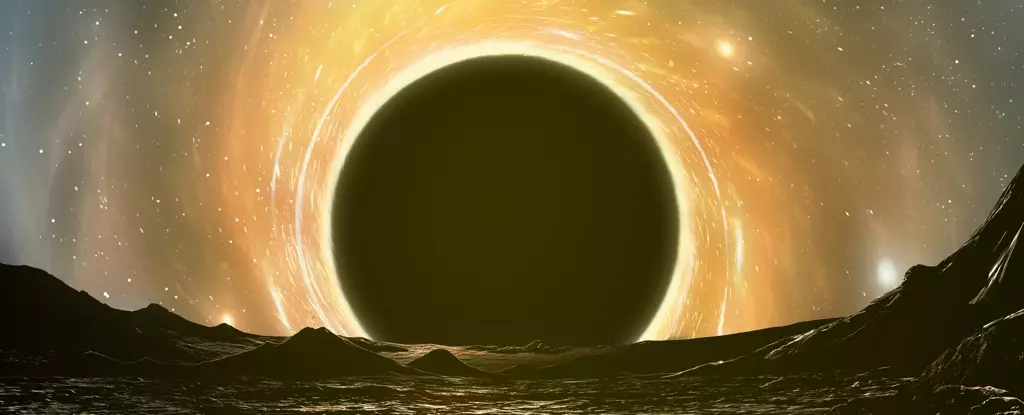Astrophysicist Stephen Hawking proposed a theory that black holes gradually lose mass over time through a strange form of radiation, as the event horizon disrupts surrounding quantum fields. This radiation, known as Hawking radiation, is thought to occur due to the complex mix of fluctuations within the quantum fields being interfered with by the event horizon. As waves that would typically cancel each other out no longer do so, an imbalance is created, leading to the creation of new particles. The energy within these particles is directly linked to the black hole, with high-energy particles forming near the event horizon of tiny black holes, causing the dense object to disappear rapidly. In contrast, big black holes would glow with a cool light that would be difficult to detect, causing the black hole to gradually lose energy over a much longer period.
New Forms of Radiation Discovered
Recent research by astrophysicists Michael Wondrak, Walter van Suijlekom, and Heino Falcke of Radboud University in the Netherlands suggests that a slope steep enough in the curvature of space-time could create a similar phenomenon. This means that Hawking radiation, or something very similar to it, could be present everywhere in the universe, leading to the universe very slowly evaporating. The researchers discovered that gravity could still affect fluctuations in quantum fields enough to give rise to new particles, very similar to Hawking radiation, without requiring the catalyst of an event horizon. This means that the curvature of space-time plays a significant role in creating this radiation, and objects without an event horizon, such as remnants of dead stars, and other large objects in the universe, also have this sort of radiation.
The scientists mathematically reproduced the same effect under a range of gravitational conditions, wondering if there was a way for particles to appear in curved space-time similar to the Schwinger effect. The Schwinger effect is a hypothetical phenomenon that occurs in electric fields, where strong enough fluctuations in an electric quantum field can disrupt the balance of virtual electron-positron particles, causing some to pop into existence. However, unlike Hawking radiation, the Schwinger effect would not need a horizon, just a mind-blowingly powerful field.
Objects without an event horizon, such as remnants of dead stars and other large objects in the universe, also have this sort of radiation. After a very long period, this would lead to everything in the universe eventually evaporating, similar to black holes. This research changes the understanding of Hawking radiation and the view of the universe and its future. However, we don’t need to worry about this happening anytime soon, as it would take a black hole with the mass of the sun 1064 years to evaporate.
Hawking radiation could exist beyond black holes, as objects with a significant mass or density produce a significant curvature of space-time. This curvature can give rise to new particles similar to Hawking radiation, without the need for an event horizon. The universe may, therefore, be slowly evaporating before our very eyes, but it would take an extremely long period for this to happen.


Leave a Reply